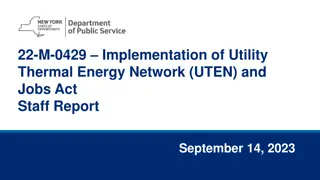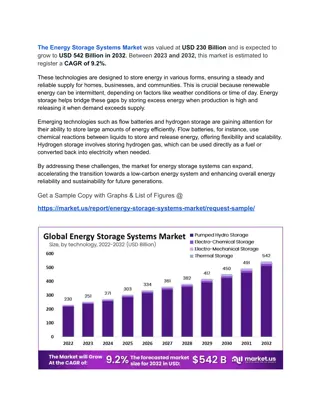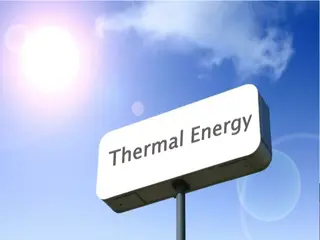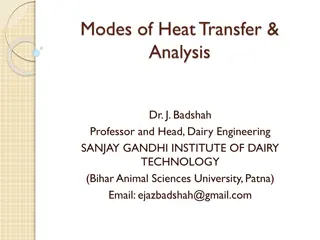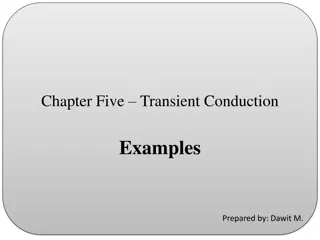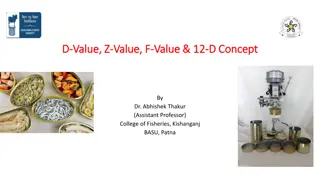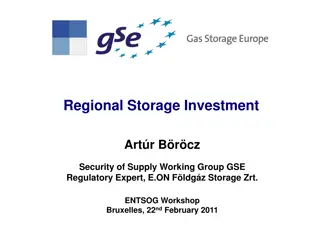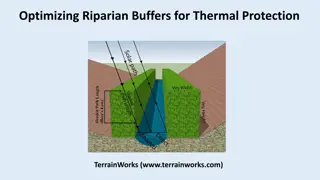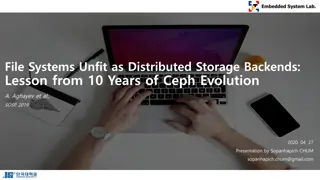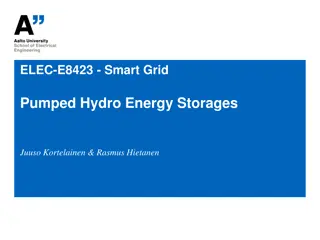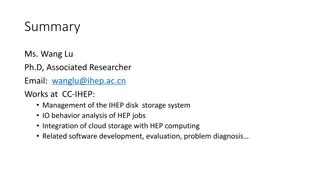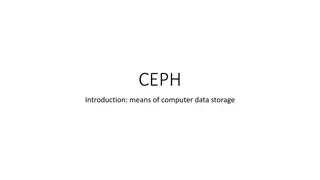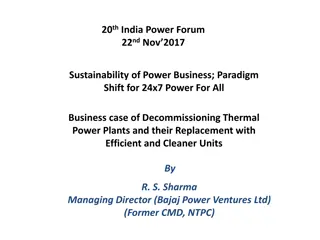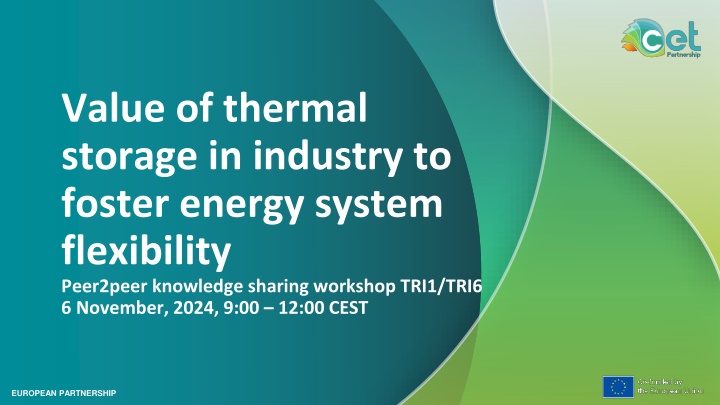
Thermal Storage Value in Industry for Energy System Flexibility Workshop
This workshop, set for November 2024, will focus on the value of thermal storage in industry for fostering energy system flexibility. Participants will engage in peer-to-peer knowledge sharing to explore the significance of this technology in the context of a European partnership.
Download Presentation

Please find below an Image/Link to download the presentation.
The content on the website is provided AS IS for your information and personal use only. It may not be sold, licensed, or shared on other websites without obtaining consent from the author. If you encounter any issues during the download, it is possible that the publisher has removed the file from their server.
You are allowed to download the files provided on this website for personal or commercial use, subject to the condition that they are used lawfully. All files are the property of their respective owners.
The content on the website is provided AS IS for your information and personal use only. It may not be sold, licensed, or shared on other websites without obtaining consent from the author.
E N D
Presentation Transcript
Value of thermal storage in industry to foster energy system flexibility Peer2peer knowledge sharing workshop TRI1/TRI6 6 November, 2024, 9:00 12:00 CEST EUROPEAN PARTNERSHIP
Agenda Discussion Session 2 EUROPEAN PARTNERSHIP
Introduction to Flexibility from industry It does exist, already today to some extent There is more need, and opportunities in future It will be crucial in wind and solar dominated power systems What is the value, now and in future? How to assess it? How to model different industry process flexibilities in energy system models? 3 EUROPEAN PARTNERSHIP
Summary - technical and feeding scoping of next calls Potential of industrial flexibility should be assessed as realistically as possible in energy system models. In practice this is challenging, as different industrial processes cannot all be modelled in detail there are multitude of options with uncertain technology price reductions for future and with different options for flexibility We need to have flexibility also in modelling energy systems! Value of flexibility is changing, depending on transition towards future (uncertain) scenarios we get different value. Challenge in quantifying the value. Industry thermal storage sizing will be optimized based on prices (value). This is a moving target/dynamic, and assumed prices will impact the flexibility in industry. Hybrid operation during transition period, adding power 2 heat and thermal storage but keeping the gas - this could be used a learning process for industry Time scales of flexibility, short term flexibility will have many other providers as well (a competition) longer term flexibility of days/weeks has more needs in future that should be reflected in value (like a period of one week of high prices/scarcity of energy) 4 EUROPEAN PARTNERSHIP
Summary - feeding future activities Energy system modellers and industry thermal storage modellers sharing project case results with other projects A follow up event once projects have results to share (2025/2026) Regulatory framework, electricity market design Decarbonisation targets need to align with market operation practices for industry Learning needed in individual companies For how to act in electricity markets, responsiveness for high/low prices gives the flexibility needed. For technical challenges in dimensioning and operating. Also for hybrid systems (like electric boilers in tandem with gas boilers affecting the efficiency) 5 EUROPEAN PARTNERSHIP
Discussion session Q&A (1) Technological learning curves and cost reductions of power 2 heat used in energy system models, what are the TRLs ? Most power 2heat technologies are commercial (TRL 9). Heat pumps >150C and direct heating to high temperature furnaces need further development (also higher temperature storage solutions presented) Solutions in industry are complex and benefits are case-by-case and technology dependent will this impact their feasibility in practice? Complexity at industry process level, also causing complexities when modelling at system level. However, once there is an economic business case, the complexity will not be an issue, companies will start proposing solutions for complexity when economic viability is seen. 6 EUROPEAN PARTNERSHIP
Discussion session Q&A (2) System integration for waste heat in wider scale? e.g. integration of industry and possible neighbouring local opportunities (heating and cooling)? District heating systems will have good opportunities for this, but outside those there are limited local possibilities for feasible waste heat utilisation. Incentives for the business cases are a must. It is difficult to rely (only) on waste heat from local providers as sometimes not there when needed. Why companies are not already having e.g. electric boilers connected to their current fossil-based steam systems e.g. paper and pulp industry? One reason is that e.g. in Germany current grid tariffs do not give economic benefit - pricing favour base load solutions. This is not the case e.g. in the Nordic power market where electric boilers are increasingly being connected to the grid by industry (and electric utilities). 7 EUROPEAN PARTNERSHIP
Thank you! TRI 6 Integrated Industrial Energy Systems TRI 1 Integrated Net-Zero Energy System 8 EUROPEAN PARTNERSHIP

